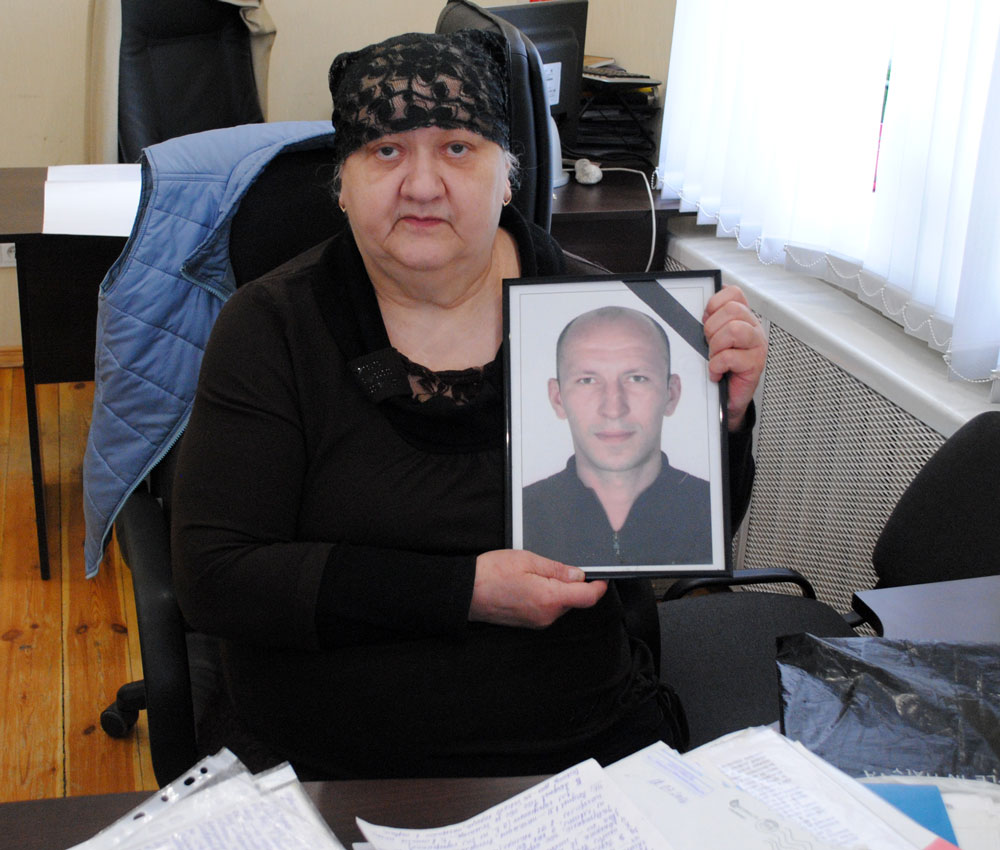Death in Žodzina prison: accident or negligence?
Ms. Maryna Bahdanava says her son died as a result of negligence by the doctors of prison No. 8 in the town of Žodzina, Minsk region.
In August 2015, Aleh Bahdanau, 36, was involved in a drunken brawl. The man was arrested, and in late December the court of Minsk’s Lieninski district sentenced him to four years’ imprisonment in a medium-security penal colony. Aleh Bahdanau pleaded not guilty, and his mother also believes that the case is far from being clear. Therefore, the sentence was appealed to the Minsk City Court.
Aleh Bahdanau had a cardiac disease, and in 2014 he underwent heart surgery. He was declared disabled and therefore lost his job.
After the surgery, he had to take medicines, regularly undergo tests and be under care of a cardiologist. All this could not be provided in detention.
Aleh told about his health both in his letters to his parents and in a letter to the judge who considered his case.
While in pre-trial jail, Aleh Bahdanau wrote to Judge Astapenka, complaining of “feeling very bad” and receiving “no medical assistance”.
“They view my arguments about poor health as malingering,” said he.
According to Aleh’s mother, the judge intentionally prevented her complaints from reaching the Minsk City Court, which is yet expected to consider her appeal.
In the meantime, Maryna Bahdanava continued writing to various authorities, but received numerous formal replies. For example, head of prison No. 8 D. Strabkou told the woman that her son “receives the necessary symptomatic treatment”. “The health of Aleh Bahdanau is currently consistently satisfactory, and he has no health complaints,” said the prison official.
At the same time, the woman argues that she sent a long list of medicines to prison, which were, however, removed from her son’s cell.
In his last letter, which the mother received after his death, Aleh Bahdanau tells about the terrible conditions in the prison hospital:
“The hospital is a former solitary confinement cell located in the basement. The cell is 3 to 2.5 meters, accommodating between 5 and 11 people on three beds. During the day you cannot lie on the bed, you can only to sit. The floor, the walls and the ceiling are made of concrete. There’s no treatment at all. I ask the guards to call the doctor, but they refuse”.
In the evening of January 28, Aleh Bahdanau was sent to solitary confinement for violations of prison rules.
The following day, the prisoner died despite emergency cardiac care.
Aleh’s mother says she still cannot understand how her son could have died in the prison hospital, with medical staff and security guards who were supposed to follow his health 24 hours a day. She also says it is suspicious that other prisoners helped the doctors attempt to save her son’s life. And why was she notified about the death only at the end of the following day?
As a result, Aleh Bahdanau’s parents have written to the city office of the Investigative Committee asking to investigate the improper performance of professional duties by the medical staff of prison No. 8.
However, the authorities refused to open a criminal case. At the same time, they admit that the decision may be cancelled if another forensic medical examination finds the signs of a crime in the prison death.


















